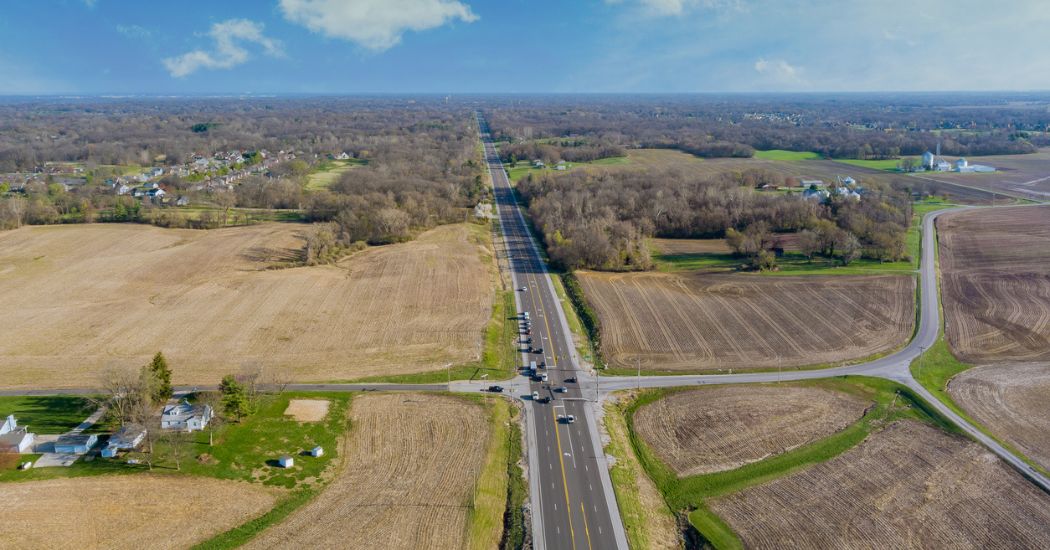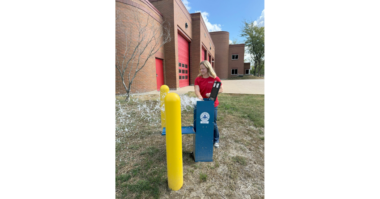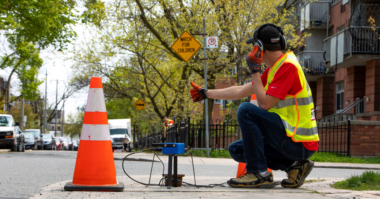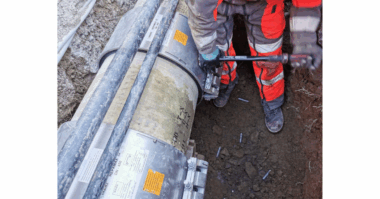Located in the state of Illinois, Exeter-Merritt Water Cooperative delivers safe and high-quality drinking water to approximately 300 residents from the county of Scott and Morgan. In 2011, the cooperative decided to do a phase 3 expansion and include additional homes in the rural area resulting in connections increasing from 154 to 325. Exeter and Merritt are small rural towns built on hilly terrains and gravel roads, with most of the meters installed in the countryside.
Though the Exeter-Merritt pipeline stretches to approximately 80 miles long, manual reading took 12 to 16 hours, and occasionally, revisits were needed to verify or correct the reading. If business-as-usual had persisted despite the increase in new connections, manual reading would have become burdensome for the Water Co-op as many of the meters are in hard-to-reach areas. Poor weather and tricky terrain can also quickly lead to unsafe conditions that prevent technicians from getting an accurate read.
In the quest for a more resource-efficient and sustainable solution, Exeter-Merritt Water Cooperative found its ideal solution in Automated Meter Reading (AMR).
First step, a robust AMR technology
Exeter-Merritt first started using AMR technology in 2012 with Mueller’s AMR endpoint. At the time, the endpoint was the perfect meter interface unit for the Water Co-op to transmit an encoded serial number, water consumption, leak detection information, and status data operated on 902 to 928MHz radio frequency. It did not take long before the Water Co-op was fully capable of managing the expanding system on its own.
“Initially, we were presented with a number of AMR solutions from the market, but we decided to go with Mueller Systems,” shared Barb Mathews, Network Manager and Operator at Exeter-Merritt Water Cooperative. “What stood out for me was that the Mueller Systems AMR solution could address the impending needs and help us handle the influx of new customers.”
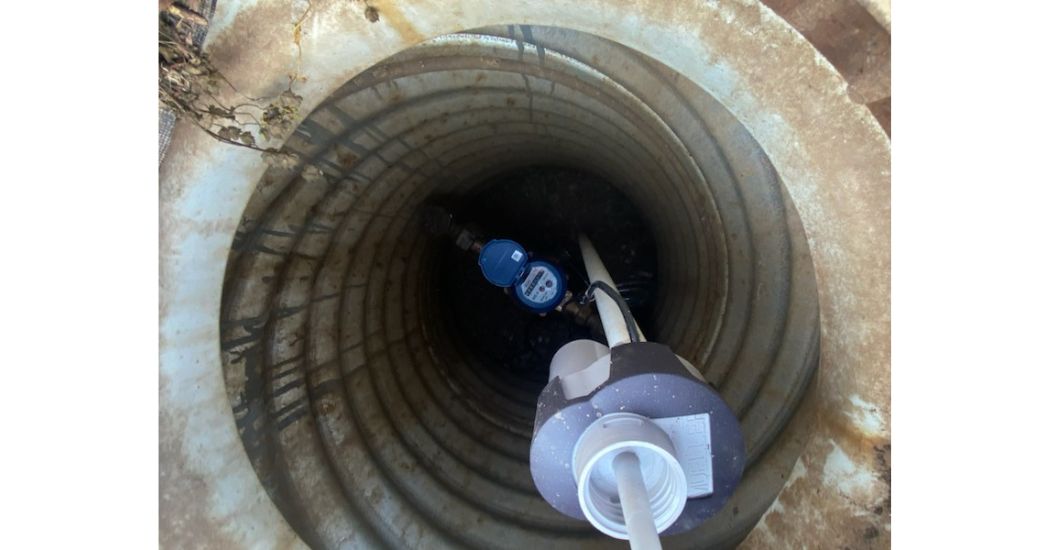 Migrating to AMI
Migrating to AMI
Mueller Systems accelerated the next iteration of the endpoint by introducing the Mi.Net® AMI Migratable solution. This AMR to AMI (Advanced Metering Infrastructure) migratable endpoint solution can be installed as a mobile AMR system, giving utilities the flexibility to migrate over to a fixed network in the future should the need arise. AMI empowers utilities to design certain areas with fixed metering and deploy mobile solutions throughout the remainder of the utility while maintaining the full two-way command and control capability that enables functionality such as remote disconnect on-demand data log retrieval and even over-the-air firmware upgrades. All Mi.Net migratable endpoints have a variety of mounting options to optimize system performance and ease of installation.
In mobile or AMR mode, the Mi.Net migratable endpoint transmits data every few seconds utilizing LoRa (long-range) technology. LoRa is a radio frequency modulation technology for low-power, wide-area networks (LPWANs). It delivers significant distance improvements in communication over many AMR systems available in the market. The Water Co-op can also avoid driving down unsafe roads as the transceiver picks up the reading from at least a mile away.
“Having the AMR system saves me eight to 12 hours on meter reading. Now, it takes just four hours; saving the cooperative time and money,” exclaimed Mathews. Mueller Systems’ lightweight mobile transceiver works in tandem with its software to provide reliable data directly into Exeter-Merritt’s billing system.
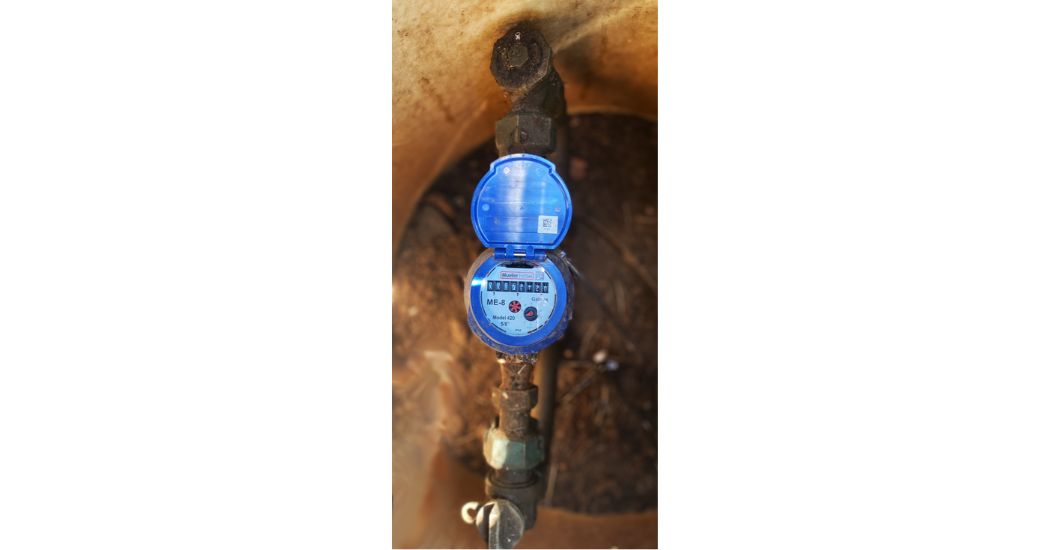 Reliable data for leak or tampering investigations
Reliable data for leak or tampering investigations
The new solution also provides the Water Co-op with data-driven evidence of a suspected leak through a comprehensive and robust data logging feature called “Consumption Profiling.” This capability is built into the Mi.Net Migratable system, allowing over 100 days of hourly usage analysis to be retrieved from the meter, with graphically displayed alarms. This enables utilities to respond to customer questions quickly, and proactively approach customers about possible leaks or tampering.
“Now when we have customers who do not believe there is a possible leak or faulty issue with their side of the meter, we can provide them with detailed reports to show their daily consumption usage. The AMR solution has helped us gain our customers’ trust by showing their meter profiles on the spot, enabling them to view granular hourly data. This assists us in responding to billing questions and demonstrates when issues such as leaks or backflow conditions start and end.”
Today, Exeter-Merritt Water Co-Op continues to reap the benefits of the Mi.Net Migratable endpoints and mobile transceivers. They are also in the process of changing their meters to the Mueller Systems ME-8 encoded register with positive displacement meters to receive granular data, permitting them to capture maximum revenue and be proactive in leak detection and resource conservation.
Barb Mathews’ passion for the industry stretches beyond her daily managerial, administrative, and maintenance responsibilities at the Water Co-op. She also devotes time to training other water cooperatives and municipalities, helping them realize the true potential of an AMR system that goes beyond basic meter reading.
“At the Water Co-Op we have noticed a drop in customer complaints. When our customers see us, they know we are doing our job, reading and profiling their meters to give them accurate billing statements,” said Mathews. “If required, we would go to a specific meter, retrieve the data and print it out for customers to view their last 170 days of usage per hour; show them high usages and when it was dealt with,” concluded Mathews.

